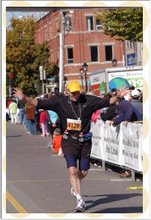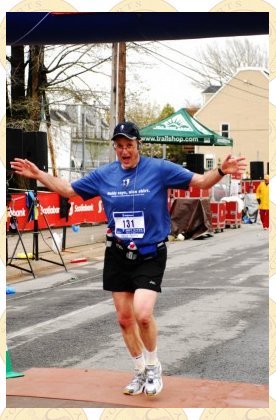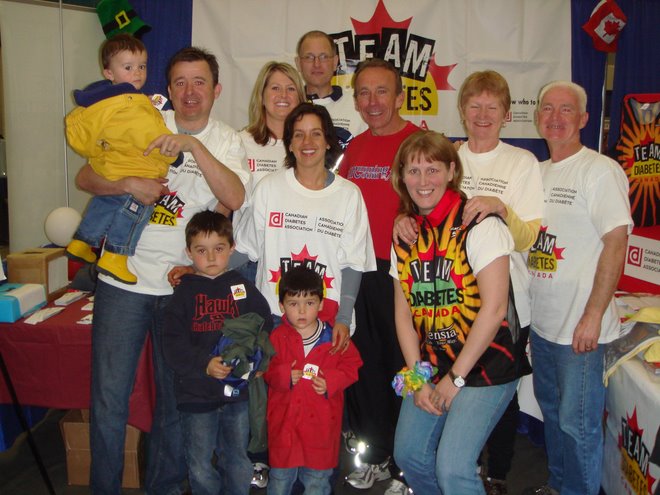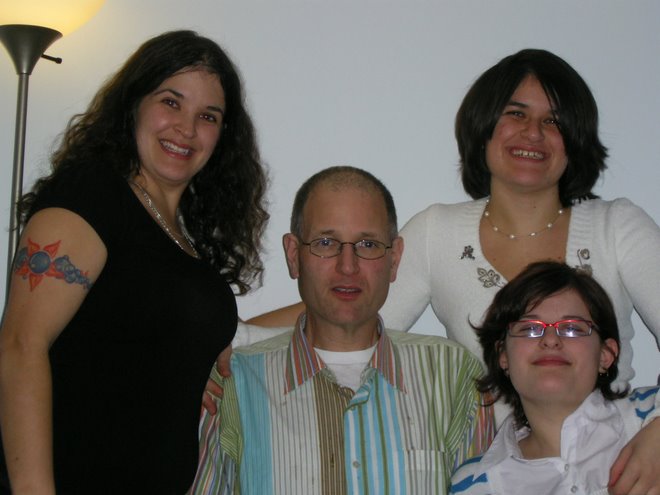Look into your heart for a changeBy MAGGIE MARWAHWed. Jan 9 - 6:04 AM
I HAVE SEEN change and his name is Harry.
He’s a tall fellow, too tall to have been running beside five-foot-zero me that late spring day. If I moved too far and too quickly to my left, his pumping elbow would have caught me on a cheekbone. His leg length alone should have given him a stride twice mine.
But I was too polite to ask him why he had joined our plodding group on this long run, so instead I listened to his story – a story of taking control and making change.
I offer a retelling now, without doing it full justice, as this new year takes root and many of us look to this calendar start as a time for change. We make fewer resolutions the older we get, perhaps because we’ve learned how hard they are to keep – how hard it is to change. But that doesn’t mean that quietly, perhaps secretly, many of us haven’t made a promise to ourselves to change something.
On the day we met, Harry had run 10 kilometres in Halifax’s Blue Nose Marathon event a few weeks earlier. He was proud of this achievement and of his time of 61:43 minutes. Not particularly stellar by some measures, but not bad for a guy who a year previous was 100 pounds heavier.
As the other runners asked questions, he told of weighing more than 300 pounds, of being diagnosed with Type 2 diabetes, and getting exercise walking to the fridge and back to his computer. He told of how, after his diabetes diagnosis, he started eating healthier meals and walking around the block at lunchtime. Then twice around, then three times. He added a stationary bike and, soon after, running, barely 10 minutes a day starting out. And now, he was determined to run a half-marathon – 21.1 kilometres – that fall.
As I listened to him, my mind dwelled on a question that had long confounded me – and more so at the time as I was working in health care communications. In this province, to work in the health care sector is to understand the full challenge of changing behaviours in a population with some of the worst health stats in the country.
I asked Harry: "What finally made you change?" After all, others weigh as much as he did, have diabetes, and do nothing about it.
"My doctor said if I didn’t, my life would be much shorter."
"Change or die?"
"Yeah. I didn’t want to die."
We ran in silence for a while after that. Too facile an answer, I thought at first. But maybe the puzzle piece was still in there somewhere: Is it fear that gives people the courage to finally change?
Change would be a trendy word if it weren’t for the heft and longevity behind that one syllable, despite the best efforts of politicians to trivialize it.
"CHANGE," Barack Obama’s posters shout, its all-capped, sans serif font the more readable for the TV viewers. "CHANGE WE CAN BELIEVE IN." In Canada, should a federal or provincial election – or both – take place this year, I wonder which political party will co-opt the word first and most strongly in their campaign one-liners and jingles.
The experts tell us to be wary of big changes to come this year. They warn of economic tightening and issue cautions about the end of our great run of prosperity. They forecast the price of oil higher and higher. They say Mother Earth can’t withstand our assault much longer. If all comes to pass, we will need to change our behaviour – spend less, drive less, use less.
But change is difficult. And it often hurts. It’s rarely quick – and in this age of instant gratification, we haven’t the patience to wait for results. Yet change is sometimes necessary for survival. Just ask Harry.
The study of change and the development of change models have exploded in the past decade as businesses and organizations seek to weather a turbulent world and governments try to address the unhealthy behaviours of citizens. Organizational change, societal change, individual change, behavioural change. The researchers study how and why it happens, how to make it happen, and more particularly, why it doesn’t happen.
For all the advancements in this studied field, the thinking that has most resonated with me is found in John Kotter and Dan Cohen’s 2002 book The Heart of Change, which looked at how people change their organizations. Change, they argued, is less about giving people data and analysis to influence their thoughts than it is about speaking to their emotions.
"People change what they do … because they are shown a truth that influences their feelings," they wrote. "Both thinking and feeling are essential, and both are found in successful organizations, but the heart of change is in the emotions."
Change is not just a cognitive exercise. Knowing the changes we want and need is rarely enough to achieve them. If it were, we’d have fewer smokers and more active people.
Instead, true change lives in our hearts – in that place that badly feels it and wants it. We change not because someone tells us to or because we know we need to. We change out of fear. Love. Desire. Sadness. Joy. Passion. Anger.
Harry knew this. I came to understand what while fear might have launched him, other emotions kept him going. A year after our brief encounter, and two years into his change, he ran a marathon.
( mmarwah@herald.ca)
Maggie Marwah is a freelance writer and communications consultant living in Halifax.
Friday, January 11, 2008
Subscribe to:
Post Comments (Atom)






No comments:
Post a Comment